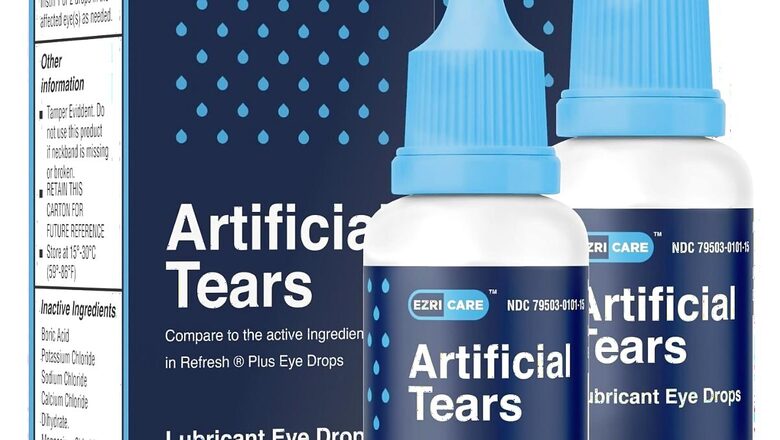
views
The United States Centers for Disease Control and Prevention (CDC) has expressed concerns over a drug-resistant bacteria that have been found in eye drops and ointment imported from India, stating the spread from person to person could gain a foothold in the health facilities in the country, a New York Times report said on Monday.
The Food and Drug Administration and the Centers for Disease Control and Prevention (CDC) has issued an advisory against the use of EzriCare Artificial Tears, a product by Chennai-based Global Pharma Healthcare, warning that they may be linked to an outbreak of ‘Pseudomonas aeruginosa.’
According to the CDC website, the outbreak of the particular strain, which is associated with multiple types of infections, including eye infections, has never been reported in the United States before.
The infection has been detected in 37 patients linked to four healthcare facility clusters. Three people have died and there have been 8 reports of vision loss and 4 reports of enucleation (surgical removal of eyeball).
The NYT cited Maroya Walters, lead investigator for the CDC’s antimicrobial resistance team, who noted that the bacteria is more drug-resistant than a similar bacteria that the CDC tends to see in about 150 cases per year, mostly in intensive-care settings. The spread of the newest strain “really could change the outlook for that,” the expert said.
The bacteria Walters referred to was the Pseudomonas bacteria which can cause infections in the blood, lungs or other parts of the body after surgery. According to a 2019 CDC report, the multi drug-resistant bacteria causes an estimated 32,600 infections among hospitalized patients and 2,700 estimated deaths in the US a year.
Dr David van Duin, an expert in infectious diseases at the University of North Carolina School of Medicine said Pseudomonas are resistant to treatment and particularly challenging to eliminate. The bacteria persist stubbornly in healthcare facilities, where it adheres firmly to sink drains, water faucets, and other damp areas. Furthermore, it is difficult to eradicate from patients who develop bloodstream infections. “It’s very hard to get rid of,” he said.
The cases associated with the eyedrops have largely been contained due to the product recall. Additionally, the FDA had also announced the recall of Delsam Pharma’s Artificial Eye ointment, which was made in the same factory as the eyedrops, due to the risk of possible similar contamination.
The FDA blocked Global Pharma’s imports, saying the company had provided “an inadequate response to a records request” and violated manufacturing rules.
The FDA also conducted an unannounced inspection at the India plant from February 20 through March 2 and found “a litany of problems with the plant’s sterility practices”, the report states citing an inspection report published by STAT news.
The Indian government also conducted raids at the units Global Pharma Healthcare on February 3. The company had in a statement said it was recalling all its products due to possible contamination. Global Pharma Healthcare is “voluntarily recalling all lots within expiry of their Artificial Tears Lubricant Eye Drops, distributed by EzriCare, LLC- and Delsam Pharma, to the consumer level, due to possible contamination,” it said in a statement.
Speaking on the current focus of the CDC, Dr Walters said it is asking doctors to work with public health labs to determine the genetic fingerprint of hard-to-treat Pseudomonas infections in the eye and throughout the body. “I think we are going to see the impact of this play out over the course of months to years,” Dr Walters said.
The CDC has advised patients who have used EzriCare or Delsam Pharma’s artificial tears and who have signs or symptoms of an eye infection to seek immediate medical care. “At this time, there is no recommendation for testing of patients who have used this product and who are not experiencing any signs or symptoms of infection,” the website states.
Eye infection symptoms may include:
- Yellow, green, or clear discharge from the eye
- Eye pain or discomfort
- Redness of the eye or eyelid
- Feeling of something in your eye (foreign body sensation)
- Increased sensitivity to light
- Blurry vision
Dr Vicente Diaz, chief of ophthalmology at Yale Health Plan in Connecticut said the infections evading the “big gun” antibiotics had alarmed experts. The infectious diseases specialist worries that if doctors use ineffective antibiotics for too long or wait to culture a bug, “that gives the bacteria more time to multiply and get more aggressive,” he said.
Read all the Latest News here




















Comments
0 comment